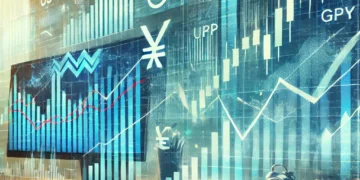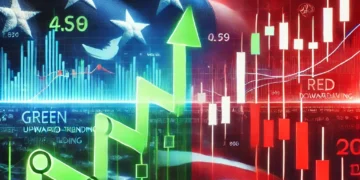Debunking the Misconception: Trading Is Not Gambling
Introduction
The comparison between trading and gambling is a common trope within financial discourse, yet this analogy is a profound misconception that can deter many potential traders from exploring the financial markets. Trading, when conducted properly, is a disciplined process of risk management, analysis, and strategic decision-making, which stands in stark contrast to the largely chance-driven nature of gambling. This essay aims to clarify the fundamental differences between trading and gambling, elucidate the reasons why trading should not be feared as mere gambling, and offer strategies to overcome any apprehension associated with trading.
Trading vs. Gambling: Understanding the Core Differences
At its core, trading involves buying and selling assets, such as stocks, currencies, or commodities, in order to generate returns based on market movements. Unlike gambling, where outcomes are predominantly based on luck, trading is founded on research, analysis, and economic indicators. Traders make calculated decisions based on a plethora of data including but not limited to financial reports, market conditions, political events, and economic theories. Furthermore, traders employ various strategies and tools to mitigate risks, such as stop-loss orders, diversification, and hedging—practices that have no counterpart in the gambling arena.
Why Trading Is Not Gambling
- Research and Analysis: Traders rely heavily on technical and fundamental analysis to make informed decisions. This involves studying historical data, understanding market trends, and keeping abreast of economic conditions that influence asset prices.
- Risk Management: Professional trading involves strict risk management protocols to safeguard investments. This includes setting predefined risk limits and continuously monitoring and adjusting positions as market conditions change.
- Strategic Planning: Unlike gambling, where bets are often placed in a sporadic and unstructured manner, trading involves meticulous planning and strategy. This includes developing a trading plan that outlines investment goals, risk tolerance, analysis methods, and evaluation criteria.
Pros of Comparing Trading to Gambling:
- Risk Involvement: Both trading and gambling involve significant risks where the capital can be completely lost, requiring a strong risk management strategy.
- Uncertainty and Probability: Both activities operate under conditions of uncertainty with outcomes that can be somewhat predicted by probabilities, though not guaranteed.
- Potential for Quick Profits: Both trading and gambling offer the potential for rapid financial gains, often attracting individuals looking for quick returns on their investments.
- Emotional Engagement: Both can elicit strong emotional responses, including the thrill of winning and the despair of losing, which can affect decision-making and performance.
- Addictive Nature: Both trading and gambling can be highly addictive, particularly for individuals prone to thrill-seeking behaviors, due to the adrenaline rush associated with the risk and reward.
Cons of Comparing Trading to Gambling:
- Basis on Analysis vs. Chance: Trading is primarily based on analysis, economic indicators, and strategic planning, whereas gambling relies much more on chance and randomness.
- Skill and Knowledge Development: Trading skills and knowledge can be developed over time and applied to improve success rates, unlike gambling, where no amount of skill can influence an outcome where chance is a primary factor.
- Long-Term Investment vs. Instant Gratification: Trading can be part of a long-term investment strategy aimed at accumulating wealth progressively, whereas gambling is typically focused on immediate gains and losses.
- Regulatory Environment: Trading operates within a highly regulated financial environment designed to protect investors, whereas gambling is regulated under different laws that do not generally provide economic safeguards.
- Economic Contribution: Trading contributes to economic activities by providing liquidity to markets and helping allocate resources efficiently, which is a constructive aspect of finance. In contrast, gambling generally does not contribute to economic productivity and is often seen as a zero-sum game.
Overcoming the Fear: Trading as a Skilled Practice
The fear that trading is akin to gambling often stems from a misunderstanding of market operations and the nature of trading activities. Education plays a crucial role in overcoming this fear. By understanding market principles and the tools available for effective trading, prospective traders can gain confidence in their ability to engage with the markets constructively. Learning from experienced traders, participating in trading courses, and practicing with simulation software or demo accounts are all excellent ways to develop a solid foundation in trading without risking actual capital.
Trading is a disciplined, strategic practice that is distinctly different from gambling. It requires skill, patience, and an analytical mindset, but most importantly, it demands respect for the markets and an understanding of the underlying economic forces at play. For those willing to invest the time and effort to learn about trading, the rewards can be substantial and far-reaching, not just financially but also in fostering a deeper understanding of global economic dynamics. As we continue to educate and clear misconceptions about trading, more individuals can access the financial markets with confidence and clarity, paving the way for informed and prudent investment decisions.

























